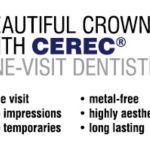Understanding Dental X-Rays: Importance, Benefits, and How They Help Diagnosis
- What Are Dental X-Rays?
- Why Are Dental X-Rays Important?
- Benefits of Dental X-Rays
- How Dental X-Rays Aid in Diagnosis
- Real-Life Examples of Dental X-Ray Diagnosis
- When Should You Get Dental X-Rays?
1. What Are Dental X-Rays?
Dental x-rays, also known as dental radiographs, are a vital diagnostic tool used by dentists to examine your teeth, gums, and jawbone. These images allow dentists to identify dental issues that are not visible to the naked eye, such as cavities between teeth, bone loss, or impacted teeth.
Dental x-rays involve using a small amount of radiation to capture images of the internal structure of your mouth. These images are then reviewed by your dentist to detect problems and assess your overall oral health.
2. Why Are Dental X-Rays Important?
Dental x-rays play an essential role in early detection and diagnosis of dental issues. Without x-rays, certain conditions may go unnoticed until they become more serious, resulting in more extensive treatments or even tooth loss. Here are several key reasons why dental x-rays are important:
- Early detection: X-rays help identify dental problems like cavities or infections before they develop into major issues, allowing for earlier intervention.
- Assessing bone health: X-rays are crucial for evaluating the health of your jawbone, which is important for detecting issues like bone loss due to gum disease or other conditions.
- Identifying impacted teeth: X-rays can reveal teeth that are growing in at an abnormal angle, which is especially useful in the case of wisdom teeth.
Overall, dental x-rays are an essential part of maintaining a healthy smile and preventing costly and uncomfortable dental procedures down the line.
3. Benefits of Dental X-Rays
The use of dental x-rays provides numerous benefits for both patients and dentists. Some of the key benefits include:
- Accurate diagnosis: X-rays allow dentists to view structures that cannot be seen during a regular examination, such as the inside of teeth, roots, and jawbones, helping them make precise diagnoses.
- Reduced need for exploratory treatments: By identifying problems early, dental x-rays can reduce the need for more invasive treatments like root canals, extractions, or extensive fillings.
- Improved treatment planning: X-ray images give your dentist a clearer picture of your oral health, which can help them develop more effective and tailored treatment plans.
- Minimized discomfort: Catching issues early often means less painful treatments and better long-term outcomes, preventing dental problems from escalating.
4. How Dental X-Rays Aid in Diagnosis
Dental x-rays help dentists detect a variety of oral health issues, some of which can’t be detected with a simple visual exam. Here’s how dental x-rays aid in diagnosing common dental problems:
- Cavities: X-rays can detect cavities between teeth, beneath fillings, or in areas where visual exams may not catch them.
- Infections or abscesses: An infection in the tooth or gum is sometimes only visible through x-rays, allowing your dentist to treat it before it spreads.
- Gum disease: X-rays can reveal bone loss, one of the primary indicators of gum disease, helping your dentist to intervene before the disease becomes severe.
- Wisdom teeth issues: X-rays can show the positioning of wisdom teeth and help determine if they are impacted or need to be removed.
By providing a detailed view of your mouth, dental x-rays allow your dentist to diagnose and treat problems early, preventing further complications and ensuring better outcomes.
5. Real-Life Examples of Dental X-Ray Diagnosis
Many dental patients have experienced the benefits of dental x-rays firsthand. For example, one patient, Emily, came to her dentist with complaints of discomfort in her molar. Although the dentist couldn’t find any issues during the exam, an x-ray revealed that Emily had a hidden cavity beneath an old filling. Early detection through the x-ray saved Emily from needing a root canal.
Another case involved Alex, who had been experiencing swelling in his gums. An x-ray revealed an abscess beneath one of his teeth, which had not been visible through a visual exam. By catching the issue early, Alex was able to undergo treatment before the infection spread and caused significant damage.
6. When Should You Get Dental X-Rays?
The frequency of dental x-rays depends on your oral health and risk factors. Generally, adults should have a full set of x-rays every few years, while children may need them more often as their teeth and jaws are still developing. Some common reasons for needing dental x-rays include:
- Experiencing pain or discomfort in the teeth or gums
- Signs of gum disease or tooth decay
- Assessing the development of wisdom teeth
- As part of routine dental exams for preventative care
Consult with your dentist to determine the appropriate schedule for your dental x-rays based on your individual needs.
For more information on dental x-rays and how they can help maintain your oral health, visit Dentistry Toothtruth today and schedule a consultation with one of our expert dentists.







 Kid's Choice Dental - Tacoma4.0 (232 review)
Kid's Choice Dental - Tacoma4.0 (232 review) Motto Clear Aligners0.0 (0 review)
Motto Clear Aligners0.0 (0 review) Robison Dental Group4.0 (197 review)
Robison Dental Group4.0 (197 review) North Park Family Dental: Dr. Michelle Kline4.0 (25 review)
North Park Family Dental: Dr. Michelle Kline4.0 (25 review) Bellingham Dental Arts4.0 (27 review)
Bellingham Dental Arts4.0 (27 review) Smile Care Dental Associates: Dilip Patel DDS4.0 (5 review)
Smile Care Dental Associates: Dilip Patel DDS4.0 (5 review) The Importance of Oral Health Education During Pregnancy for a Healthy Pregnancy
The Importance of Oral Health Education During Pregnancy for a Healthy Pregnancy Best Tips for Brushing Your Teeth Properly for Healthy Gums: Essential Techniques for Oral Health
Best Tips for Brushing Your Teeth Properly for Healthy Gums: Essential Techniques for Oral Health Why Skipping Dental Checkups Can Lead to Bigger Oral Health Problems
Why Skipping Dental Checkups Can Lead to Bigger Oral Health Problems Advantages of Porcelain Dental Restorations
Advantages of Porcelain Dental Restorations How Can Diabetes Cause Tooth and Gum Problems? Preventing and Managing Oral Health Issues
How Can Diabetes Cause Tooth and Gum Problems? Preventing and Managing Oral Health Issues Healthy Habits for Promoting Good Oral Health and Hygiene: Tips for a Healthy Smile
Healthy Habits for Promoting Good Oral Health and Hygiene: Tips for a Healthy Smile